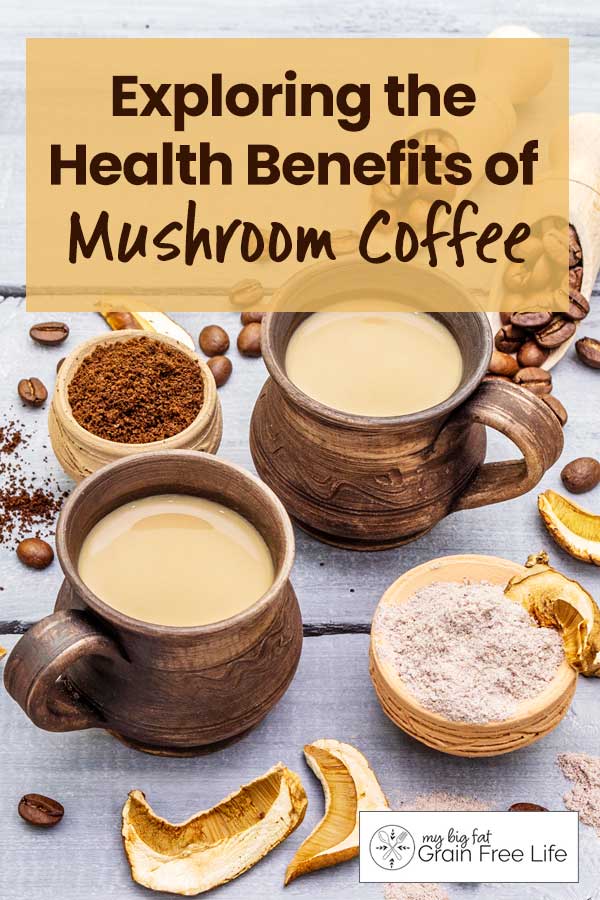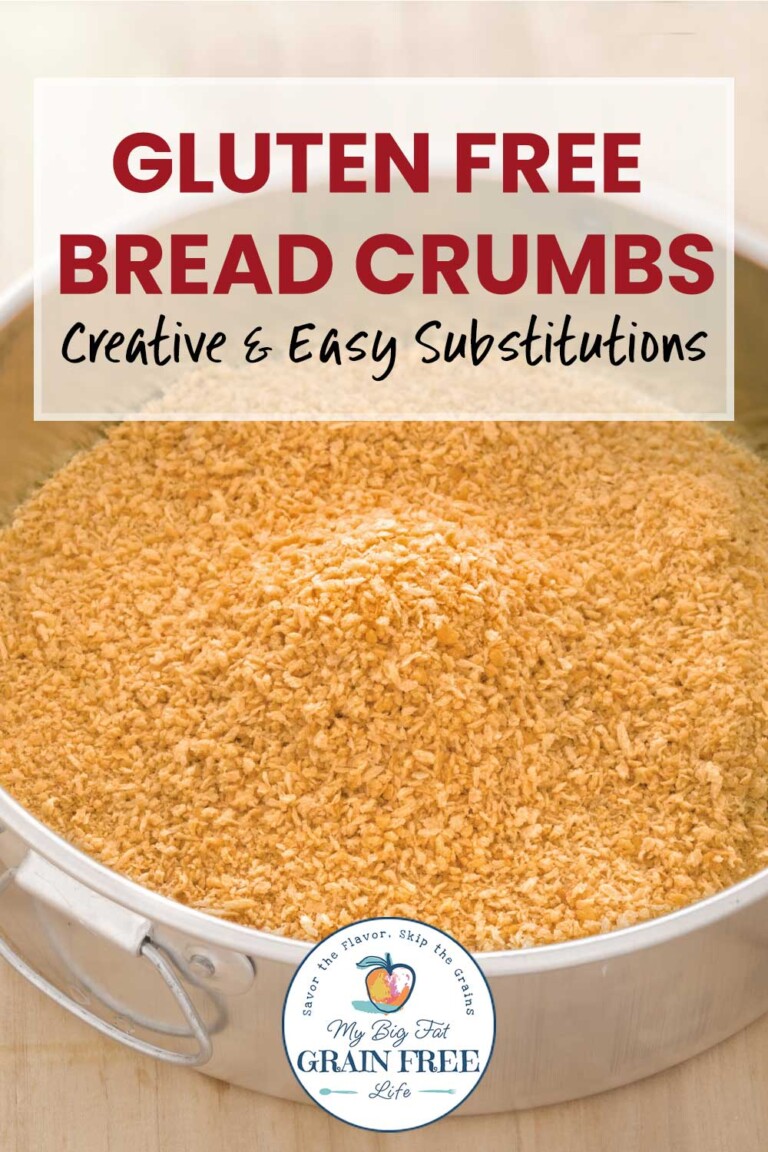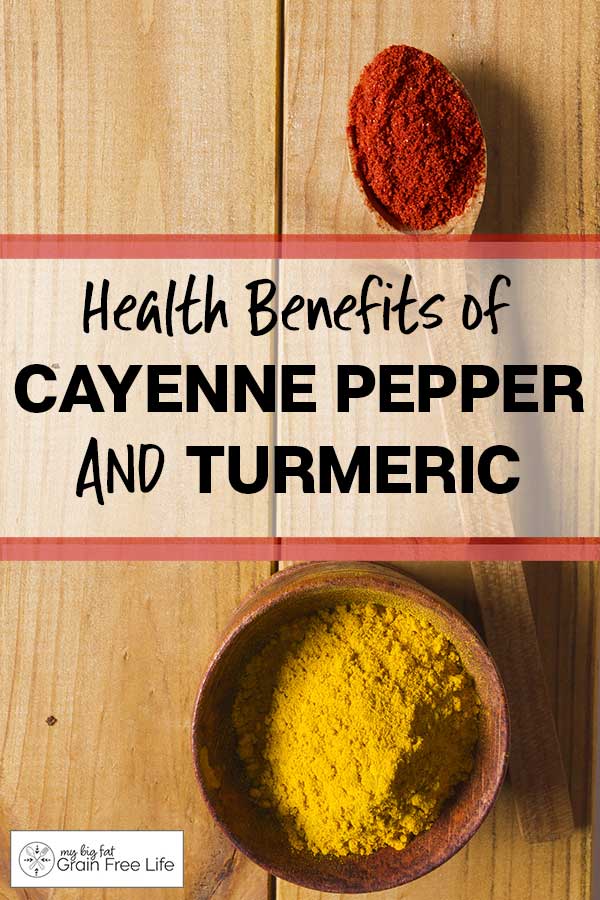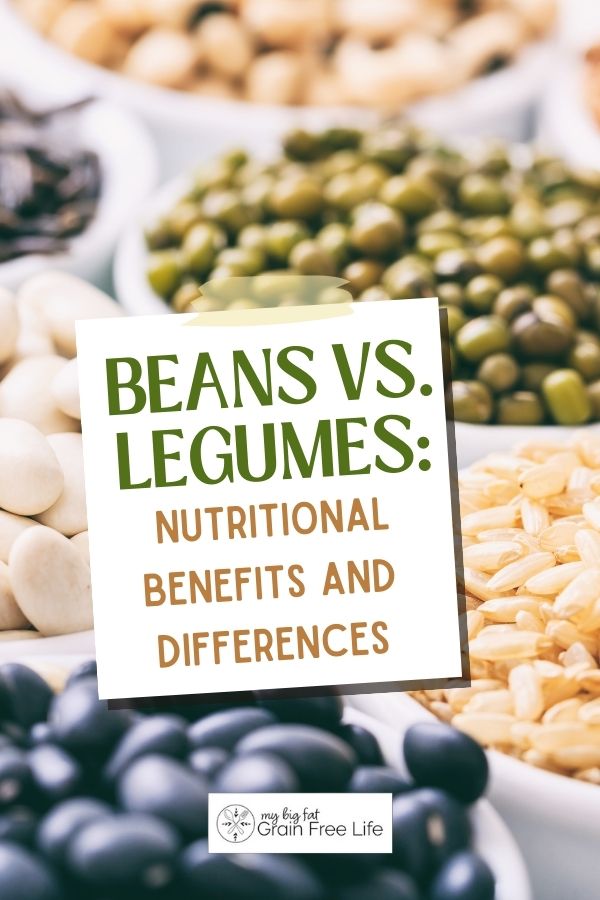Comparing Apple Cider Vinegar Vs White Vinegar
This post may contain affiliate links. If you make purchase after clicking a link, I may receive a commission at no extra cost to you.
Last Updated on October 19, 2023
With so many different types of vinegar, how do you know which one is best for your particular use? We’re going to do a side-by-side comparison of apple cider vinegar vs white vinegar so you can better understand the best uses for each type.
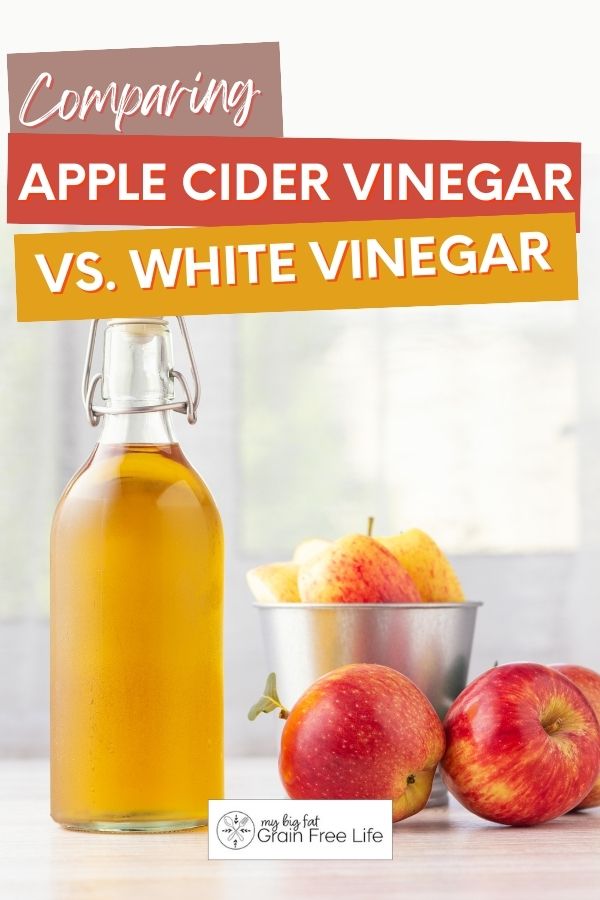
Cider Vinegar Vs White Vinegar
The word vinegar comes from the French word vin aigre meaning sour wine. There are many different types of vinegar such as sherry vinegar, malt vinegar, red wine vinegar, and balsamic vinegar. However, today we’re looking at the difference between apple cider vinegar vs white vinegar.
Apple Cider Vinegar
The sour taste of apple cider vinegar makes it perfect to use for salad dressings and cooking. It also has numerous potential health benefits so it’s also been used for thousands of years for medicinal reasons.
Apple cider vinegar can be consumed when on an AIP diet, unlike white vinegar. It’s a staple for making homemade vinaigrette.
What is Apple Cider Vinegar?
Apple cider vinegar is a type of vinegar that’s made from fermented apples. It has a distinctive brown color and is a great addition to many dishes.
How Apple Cider Vinegar is Made
Apple cider is made through a two-step fermentation process. In the first step, apple pieces, water, and yeast are combined in a container to create an alcoholic beverage, apple cider. However, the fermentation process doesn’t stop here.
During the second step, a different type of acetic bacteria is added to the hard apple cider. The acetic bacteria’s purpose is to turn the alcohol into vinegar.
Raw Apple Cider Vinegar vs. Filtered Apple Cider Vinegar
Filtered apple cider vinegar has been run through a filtration process to remove the remaining bacteria called the mother. Raw apple cider vinegar is not filtered, so the mother of vinegar, which is full of healthy probiotics, yeast, and enzymes, remains in the vinegar.
Check out: Apple Cider Vinegar with Mother vs Without to understand the benefits of the “mother.”

White Vinegar
White vinegar has many different uses. The acidity in the white vinegar allows it to be used as a cleaning agent on hard surfaces like windows and counters. It can be used while doing laundry to help deodorize the clothing and to help your various articles of clothing keep its color.
Distilled white vinegar may also be used to clean appliances like coffee pots and washing machines. It has also been used to remove clogs from pipes and to deodorize rooms.
What is White Vinegar?
White vinegar is also called spirit vinegar and is made through the fermentation of grain alcohol. There are several common vinegars that fall under the category of white vinegar such as white rice vinegar, white wine vinegar, and champagne vinegar.
How White Vinegar is Made
White vinegar is usually made by fermenting grain to turn it into alcohol. Then acetic acid bacteria is added to the resulting liquid to turn the alcohol into white vinegar.
Types of White Vinegar
There are several different types of white vinegar that you may find on the shelves of the grocery store. Each type of white vinegar is made differently and has a slightly different flavor.
- Distilled White Vinegar – Distilled white vinegar has a strong flavor and a higher acidity level.
- White Rice Vinegar – White rice vinegar is fermented from rice and has a sweet flavor.
- White Wine Vinegar – This type of vinegar has a mild taste and is made from white wine.
- Champagne Vinegar – Champagne vinegar has a sweet flavor and is fermented from the same type of grapes that champagne is made from.

Apple Cider Vinegar vs. White Vinegar: What Are the Differences?
While apple cider vinegar and white vinegar are both types of vinegar, there are some crucial differences between the two. These differences include the acidity, color, flavor, and fermentation process of the vinegar.
Acidity of Cider Vinegar vs. White Vinegar
- Cider Vinegar: Apple cider vinegar has an acidity between 2 and 3 pH.
- White Vinegar: White distilled vinegar usually has an acidity of 2.4 pH.
Color of Cider Vinegar vs. White Vinegar
- Cider Vinegar: Apple cider vinegar has a distinctive brown color.
- White Vinegar: White vinegar has a clear color to the liquid.
Taste of Cider Vinegar vs. White Vinegar
- Cider Vinegar: Cider vinegar tends to be sour with a fruity flavor to it.
- White Vinegar: White vinegar is acidic with a sharp flavor
Fermentation Process of Cider Vinegar vs. White Vinegar
- Cider Vinegar: Cider vinegar is a result of the bacterial fermentation of apple juice.
- White Vinegar: White vinegar can be fermented from rice, grapes, and grains.
Uses in Cooking for Cider Vinegar and White Vinegar
- Cider Vinegar: Some of the best ways to use apple cider vinegar in cooking are to make marinades and sauces, dressings, along with food preservation.
- White Vinegar: White vinegar is a versatile ingredient. It’s used to make pickles, marinades and sauces, salad dressings, baking, a leavening agent, and to make cheeses.
Medicinal Use Comparison
- Cider Vinegar: Cider vinegar, especially organic apple cider vinegar, may be beneficial for insulin sensitivity, weight loss, increasing energy, heartburn, gut health, and whitening teeth.
- White Vinegar: Some of the medicinal purposes of white vinegar are its antimicrobial properties. It may also help people manage their weight and control their blood sugar levels.
Household Uses for Vinegar
- Cider Vinegar: A great way to use apple cider vinegar is to clean makeup brushes and add to a foot spa. It can also be used to catch fruit flies or as a cleaning agent.
- White Vinegar: White vinegar, especially cleaning vinegar, can be used for many cleaning purposes including toilet bowls, coffee machines, and windows.

Cider Vinegar Vs White Vinegar Nutritional Comparison
As a result of the different ways that the two kinds of vinegar are made, they each have different nutritional values.
Apple Cider Vinegar Nutrition
The nutritional value of raw apple cider vinegar includes acetic acid, vitamin B, and vitamin C. It is also full of antioxidants and polyphenols that help to maintain good health. It also has a small amount of iron, phosphorus, magnesium, and potassium.
White Vinegar Nutrition
White vinegar has a high acetic acid content and a trace amount of iron and sodium.
Culinary Uses of White Vinegar
White vinegar is a popular choice for cooking as it’s readily available and adds a tart flavor to various dishes.
Pickling and Preserving
The higher concentration of acetic acid makes it an excellent choice for pickling and preserving foods. You can use any type of white vinegar such as rice wine vinegar or distilled white vinegar to pickle vegetables, fruits, or melons.
Marinades and Salad Dressings
Another use of white vinegar is in marinades and salad dressings. The acid in vinegar helps marinades to break down the meats and allow the flavor to seep into them. White vinegar also adds a tart flavor with a hint of sweetness to the dressing.
Other Uses in Cooking
White vinegar is also used in baking as a leavening agent.

Culinary Uses of Apple Cider Vinegar
A bottle of apple cider vinegar is handy to keep in your kitchen. It’s a popular ingredient to add to marinades, dressings, and vinaigrettes. My popular recipe for zucchini pasta salad uses a homeamde Italian dressing made with apple cider vinegar.
Marinades, Dressings, Vinaigrettes
Apple cider vinegar has the added bonus of fruit. This gives it a sweet fruity flavor that gives dressings, vinaigrettes, and marinades a gently tangy and sweet flavor.
Fermentation and Fermented Foods
You can also use apple cider vinegar to ferment foods the next time you are fermenting vegetables. It gives the fermented food a different flavor than white vinegar.
Other Uses in Cooking
Apple cider vinegar is one of the best substitutes for white vinegar since it has a delicious flavor. You can use it to pickle foods or as a leavening.

Household Use and Cleaning Using Distilled White Vinegar
Distilled white vinegar is a great cleaner. Some of the uses of vinegar in the house are to clean coffee pots, washing machines, and hard surfaces. Some other common uses are sanitizing and deodorizing a room. You can also add white vinegar to a load of wash to keep the colors bright or use the vinegar to remove rust.
Household Use and Cleaning Using Cider Vinegar
Apple cider vinegar also has various uses that include being used as a cleaning agent to clean your house in a natural way. It can also be used to trap fruit flies or deodorize appliances. Apple cider vinegar can be used for a detoxing bath and also to make a revitalizing face mask.
Cost Comparison of Cider Vinegar Vs White Vinegar
Both white vinegar and cider vinegar are able to be easily found at grocery stores at a reasonable price, but the two kinds of vinegar do not cost the same. You can expect distilled white vinegar to be less expensive than filtered apple cider vinegar.
Cider Vinegar
The cost of apple cider vinegar varies depending on if you are purchasing raw apple cider vinegar with the mother. This will be more expensive than regular filtered apple cider vinegar.
In general, cider vinegar will cost more than distilled white vinegar, or cane vinegar. However, cider vinegar may have a similar price to rice vinegar, white wine vinegar, or champagne vinegar.
White Vinegar
As there are several different types of white vinegar, you will find they each have a slightly different cost. You can expect white distilled vinegar to be the cheapest vinegar available. Rice vinegar, white wine vinegar, and champagne vinegar will be more expensive, comparable to apple cider vinegar.
Storing Vinegar & Shelf Life
All vinegar should be stored in a cool dark place away from both direct heat and direct sunlight. This should allow the vinegar to last for many years. Keep in mind that while vinegar doesn’t have an expiration date, it does have a best-by date. So, a good rule of thumb is to keep vinegar only for two to five years.
Can You Use Substitute Apple Cider Vinegar for White Vinegar?
Yes, you can usually substitute apple cider vinegar for white vinegar. The most obvious difference between the two vinegars is the color. Also, apple cider vinegar will give the dishes a slightly fruity flavor that white vinegar doesn’t have.
Final Summary
The main difference between apple cider vinegar and white vinegar is the ingredients that are fermented to make each type. Apple cider vinegar is fermented from apple pieces. You can use apple cider vinegar in the cooking and cleaning. The best choice is often to look at raw options when purchasing cider vinegar. Raw apple cider vinegar still has the mother which may provide many nutritional benefits.
White vinegar is made from the fermentation of grain alcohol and is also a versatile ingredient to keep in your house. You can put the vinegar into a spray bottle to use as a cleaning agent or to remove lingering smells. It’s also a good idea to use white vinegar when pickling or making a marinade or dressing.
Sources
- https://www.webmd.com/vitamins/ai/ingredientmono-816/apple-cider-vinegar
- https://www.livestrong.com/article/377670-apple-cider-benefits/
- https://en.wikipedia.org/wiki/Apple_cider_vinegar
- https://www.thedailymeal.com/1128074/filtered-vs-unfiltered-apple-cider-vinegar-whats-the-difference/
- https://www.hsph.harvard.edu/nutritionsource/food-features/vinegar/
- https://www.webstaurantstore.com/article/373/types-of-vinegar.html
- https://greengobbler.com/blog/what-is-the-ph-of-vinegar
- https://mydr.com.au/nutrition-weight/apple-cider-vinegar/
- https://www.healthline.com/nutrition/white-vinegar
- https://www.houstonmethodist.org/blog/articles/2023/mar/is-apple-cider-vinegar-good-for-you/
- https://www.livekindly.com/11-apple-cider-vinegar-uses-for-cooking-and-beauty/
- https://tools.myfooddata.com/nutrition-facts/173469/wt1
- https://tools.myfooddata.com/nutrition-facts/501395/wt1/1
- https://maundersmarketplace.com/how-to-marinade-meats-like-a-pro/
- https://www.marthastewart.com/1121442/household-uses-vinegar
- https://brightland.co/blogs/field-notes/best-vinegar-for-salad
- https://www.northcoast.organic/popular-ways-people-use-apple-cider-vinegar-for-household-cleaning/



